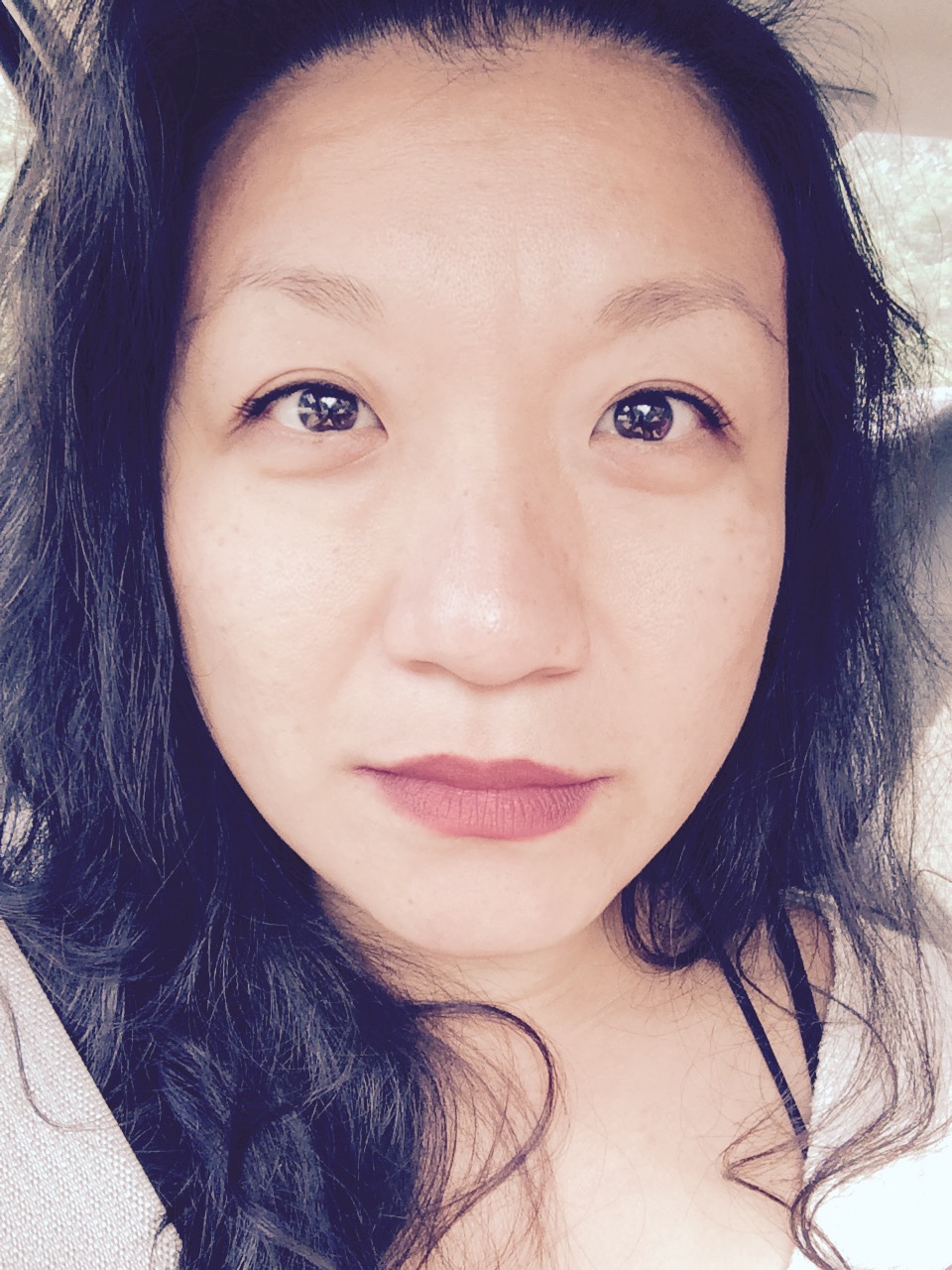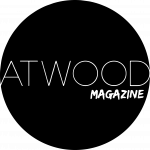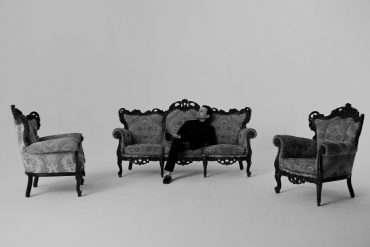In honor of Asian American and Pacific Islander (AAPI) Heritage Month, Atwood Magazine invited AAPI artists and music industry representatives from around the world to participate in an interview series reflecting on identity, music, culture, inclusion, and more. Throughout the month of May, Atwood Magazine will be continuing those conversations in celebration of AAPI Heritage Month, engaging with artists and publicists alike to discuss the roles of heritage and representation in their own art, the state of the music industry, and its role in promoting diversity, visibility, equality, and more.
– Mitch Mosk, Editor-in-Chief
•• •• •• ••
Today, Atwood Magazine speaks with Sharon Cho, co-manager of Duran Duran. A South Korean immigrant who moved to New York at 5 years old, Sharon is a proud Queens girl and New Yorker with a passion for English synth pop and NYC freestyle. She has been at Magus Entertainment for nearly two decades, and currently oversees the day-to-day operations of Duran Duran’s multifaceted, global business.
•• ••
A CONVERSATION WITH SHARON CHO

Atwood Magazine: Could you tell me about your heritage?
Sharon Cho: I’m Korean-American. I was born in Korea in a place called Gwangju, which is the very southern part of South Korea. My parents are both Korean and my mother’s family is actually from North Korea originally. They defected in the early ’50s to South Korea, when there was a lot of turmoil between the two territories. They were introduced by my dad’s sister, got married, I was born there and then I moved to New York when I was five. Actually, one of the first childhood memories is landing at the airport at JFK. It’s flash memory, there isn’t much around it, just a kind of visual in my head. I can still see that one moment so I imagine it’s a pivotal moment for me. From there, I grew up in Queens, and I went to school in a couple of different boroughs, but always in the city. I grew up in the late ’80s and early ’90s which was an extremely colorful and exciting time. My parents had a little storefront in Bushwick which was very different than it is now. I spent a lot of time there since I was small and they couldn’t afford babysitters all the time, and it was such an amazing learning experience, watching all kinds of the different people in the city, I saw all sorts of weird stuff!
What kind of a storefront was it?
Sharon Cho: It was a general merchandise kind of store, so they sold anything that people in the neighborhood might need for various things. It wasn’t any one particular thing, they had everything from costume jewelry, to hats and gloves, and scarves, to bags… I remember, they had also a display of posters of popular musicians of the time, Madonna, Michael Jackson, Menudo, Culture Club…Which was my favorite thing about the store, of course.
Yeah, it was just like a crazy mishmash of stuff that they had in there, but what I remember most is the physical space and being there during that really magical time of NYC, when you heard the most amazing music coming out of cars rolling down the street and everything was really loud and everybody was speaking different languages… It was just complete chaos and I loved it.
One of the interesting things about New York City, maybe you can speak to your experience, is that it is a city of immigrants of almost every generation, and I think that makes your experience all the more special.
Sharon Cho: Yeah, yeah. I feel very lucky in some ways that I landed here. I feel very fortunate about that. And I’m pretty certain that I wouldn’t be doing what I’m doing for work if my parents hadn’t landed in New York.
How do you mean?
Sharon Cho: Well, I had a natural interest in arts and culture from when I was really little. And if I was interested in some artist or some type of music, I was just across the tunnel from Manhattan, where most of that stuff was happening. So I was able to explore and go seek it out in real life pretty easily. And that’s a purely was a geographical thing. If I had lived somewhere else, I don’t think it would have been so easy. Of course, there are other cities in the world that I would have had that advantage, but I think New York City at that particular time was pretty special.
We can brag about New York all we want, I don't mind. How has your relationship with your heritage changed over time?
Sharon Cho: Has it changed…? I think this is probably pretty common for people my age who grew up here. When I was younger, it was very much a struggle. When I first arrived to America, I didn’t speak English. I had to start school right away and I learned pretty quickly because I was little and kids that age pick things up like language pretty easily. So I did okay with that but I had to learn so many other new things really quickly as well! And one way I think that I coped with that was pushing all of my Korean-ness and Asian-ness away, and just trying as hard as I could to fit in, to assimilate. Practice English until I don’t have an accent, be the first person who could read in my class.
There’s a lot of pressure to fit in which carried on into my teenage years because then you have a whole other set of pressures, right? [chuckle] Suddenly, there’s boys and fashion, and all these different ways that you’re really wanting to fit in while creating a community and friendships; you’re figuring out your identity. But at that age, a lot of time, every decision you make is based on simply not wanting to stick out.
So there was a lot of pushing away, denial… I spent a lot of time wishing I wasn’t Asian, wishing, “Why wasn’t I just born white? It would have been so much easier.” I had all those kinds of thoughts throughout high school. And then, I don’t know, things started changing in my early 20s… I might have just gotten tired of fighting it, I’m not sure. Discovering Margaret Cho was a pivotal moment for me. When her TV show aired, even though it was very short-lived, it was very important for me. It was the first time I saw an example of another Asian-American woman working in a creative field, in entertainment. I had never seen that before.
The Korean-American community in Queens, in Flushing where I grew up, especially at the time, was quite insular. And that very traditional mentality amongst immigrant parents of, “You’re to do well in school, find a career that’s stable and responsible and grown up, and then you immediately get married and have a family.” [chuckle] And that becomes your roadmap. But I knew early on, that wasn’t what was going to make me happy. So that’s why it was so important for me to see Margaret on TV, because it gave me a real life example of how things could be different to what I was seeing in my community.

So how does that translate to where you are today?
Sharon Cho: Well, I think from that point on, I felt much more at ease about exploring my creative interests and I starting to think, “Well, I am obsessed with music. Maybe I can do something with that.” Whereas before, I’d been thinking, “Well, I am obsessed with music but it’s just a hobby.” My thinking started shifting a bit and I began asking myself questions like, “What does a music job look like? What does a job in entertainment look like? What would I be able to do? What am I good at?” And that shift was because I saw her and eventually, other Asian-Americans, in those jobs.
It sounds like representation had a really big impact on your personal life and your trajectory.
Sharon Cho: Yeah, it had a huge impact. When we’re young, you learn by modeling yourself after something that either you connect with or that feels similar or familiar to you. And so, the more of those kinds of experiences I had, I was able to realize that a bit better.
I know that New York City itself was a melting pot of culture. Did you have a lot of music in the home?
Sharon Cho: No, I didn’t. My dad had kind of weird taste in music… He was a big prog rock and country person. He had a lot of records at home but my parents worked so much, there was rarely time to play music at home. It was a big event in my house when the Grammys or the Oscars were on, and it was solely on me because I wouldn’t shut up about it. [chuckle] So on those nights, we’d have the TV on and we’d watch the performances and celebrities and stuff while I tried to explain the culture significance of what was happening to my family.
I stayed up late and listened to the radio a lot and bought as many CDs and tapes as I could, so I discovered a lot of music myself, but it didn’t really come from the home. Although, just going back to my parents’ store, the radio was always on there and that’s actually one of my first music memories – listening to pop and top 40 radio during that time.
How did your passion become a profession?
Sharon Cho: A bit by accident. I had no intention of being a manager. I was in college studying something completely different and I had a whole alternate plan. I had one semester off and I took a music internship at a management company and a few weeks into it, I completely switched gears and knew this is what I wanted to do.
From then on, I learned everything I could. When Magus Entertainment signed Duran Duran right before the reunion of the original five band members, I was an intern and was kind of in the right place at the right time. The office assistant at the time was leaving and I was asked to fill in temporarily, which eventually turned into a full time position. That was 17 years ago, which is crazy to think about. In that time, I’ve learned a ton, and worked my way up from assistant to helping run the band’s day to day operations.
What has your experience been like managing this legendary band over the past two decades?
Sharon Cho: I co-manage the band with Wendy Laister, who’s the CEO of Magus Entertainment. It’s been pretty wild and lots of fun. We’re in the middle of a release week right now, the band’s first single off the new album actually came out today, and we did a big album announcement and it’s just been completely bonkers as it always is around this time.
They’re such a creative group of guys, they don’t only make music, and don’t approach things in the obvious, straightforward ways you’d expect, which is exciting. When things exploded for them in the ’80s, because they were marketed very much as a boy band and there was so much success around that, lots of things around the public’s perception of them were out of their control. They started out as an art school band, really, or with that kind of approach to their music and art and, to be honest, that hasn’t changed a lot since the beginning. They were really into art and film and fashion from the beginning, and still tie those things back into the music to this day.
It’s the 40th anniversary of the release of their first album next month, and they just announced their 15th studio album. We should all be so lucky, right? It’s kind of unbelievable.
A lot of people don't always think about what it means to be a manager or co-manager of a band. It sounds like it's everything, and then some.
Sharon Cho: Yes, it is that, for sure. Maybe an easy way to look at it is that you’re kind of a general manager of the band or artist’s overall business. Your job is to oversee the operation of every part of the business. The creative stuff, I tend to try and stay out of as much as I can but if they need anything to help the process, of course, I will step in and help. But that’s really up to the artist. The priority or the manager is making sure everything else is in place and operating properly, and they’re being presented to the public in a way that’s authentic and true to them.
That's very helpful. Thank you. Are there any things that you specifically learned along the way that you've carried with you to this day?
Sharon Cho: You have to keep it moving. You don’t have to solve every problem that’s in front of you in the moment, every single time. You can come back to things or carry them with you a bit, and figure it out as you go.
Another thing, which is kind of related, is that you don’t have to have the answer to everything, all the time. And that’s really hard to do as a manager because everybody comes to you for answers, you’re the first port of call most of the time. And I’ve had to learn this for myself, that I don’t have to have the answers all the time, every time… and that it’s OK to ask for help.
Circling back to our conversation about heritage and identity, what is your relationship with AAPI Heritage Month? What does this month symbolize for you?
Sharon Cho: If I’m completely honest, I haven’t paid attention to it as much as I have in recent years. I remember being surprised when I learned that it even existed, less than 10 years ago.
But I think that ties into the significance of it for me now, which is that it’s important to take time to appreciate your community. I love my community, I love Asian-Americans. [chuckle] I think we’re so amazing and we get shit done. And I think it’s important to recognize that and also to remind yourself of the history and how significant it is and how much we’ve contributed to the country. And how, for years, even though we’ve been regarded as less American than others and even un-American at times, to remember and to learn the history and recognize the value of everything we give back to the country.
You talked about a feeling of wanting to reject your heritage in your teenage years, and then rediscovering it later on in life. Can you talk to me about the role heritage plays for you today and what parts of your family's culture you've brought into your home?
Sharon Cho: I don’t think about it as much as I used to. I think once I came to terms with it, it just became a natural extension of who I am. I’m much less apologetic about it now, maybe. I think this might be common to Asian-American women in particular, but I think we’re trained from when we’re kids to not make a lot of noise, don’t disrupt, don’t argue, don’t talk back, this kind of stuff. This is common for a lot of women, in general. Don’t bring attention to yourself, just be quiet. [chuckle] “Don’t cause trouble” was a big thing when I was growing up. And I let go of that in my later years. Not that I’m out there on the streets trying to fight everybody but I’m less apologetic, I’m more confident. I’m more comfortable, I think, in my skin.
The most obvious thing in my household – I live with my boyfriend of many years – is the food. And it’s so interesting because my mom will bring us Korean food and still, she always asks, “Well, is he going to like it? It smells really bad. The kimchi smells like this… ” [chuckle] And I have to reassure her still, “No, it’s gonna be okay, he’ll eat it because you’ve made it for us and he loves it and it’ll be fine.” That’s a small thing but I wouldn’t have reacted that way a few years back, probably. Overcoming that kind of shame that creeps up in unexpected ways, that’s been a big game-changer for me.
What are some aspects of your Korean identity or heritage that people may not or often don't know about you?
Sharon Cho: There’s a range but people who meet for the first time, there is that moment, I think a lot of Asian-Americans have this experience when they want to ask you what your heritage is but they’re not quite sure how to. [chuckle] And so, there’s an awkward moment. And, look, I feel for a lot of people who are curious, but they’re not quite sure how to ask certain questions, It’s uncomfortable and nowadays, lots of people aren’t quite sure what they’re allowed to say, what they’re not… For me, I wish people would just come out with it and say what they want to say, ask what they want to ask… [chuckle] And then I can say to them, “Well, maybe next time you should think of phrasing it this way because da da da…” Having the conversation, for me, feels much more productive.
You're happy to carry the spear and help shepherd the conversation...
Sharon Cho: I am, yeah. But that’s just me. I completely understand how it might be uncomfortable others. And also, people have a lot of different kinds of trauma around it, have had bad experiences with people being combative in that kind of interaction, maybe they stuck up for themselves and were attacked, stuff like that. Everybody’s experience is very different. So I can only speak for myself, I’m happy having the conversation and I, personally, have no problem with uncomfortable ones.
I think people are surprised at the kind of music I like when we really get into it. I’ve had that experience before. I assume that’s tied to my heritage, but I’m not sure. People seem very surprised a lot of the time that I’m a fan of early English synth pop. I grew up listening to a lot of it pretty much because of one radio station, WLIR which operated out of Long Island and broke a lot of those bands in the US. I love Bronski Beat and bands like OMD, Yaz, Erasure and Depeche Mode… Yeah, lots of those kinds of bands.
You forgot to mention Duran Duran!
Sharon Cho: Duran Duran, yes! What’s weird about Duran Duran is I didn’t really become a fan of theirs until the ’90s when the Wedding Album came out. “Ordinary World” and “Come Undone” were on all of my mix tapes back then. I also remember the day that we got MTV in our house. I knew the cable guy was coming to install cable the next morning, so I couldn’t really sleep the night before, I was really excited. And so he’s installing it. And I keep asking him, like, “We’re gonna have MTV, right? My dad said we’re gonna have MTV… ” I watched him finish the installation and then we turned it on. And I remember “Lucky Star” by Madonna was the first music video I watched. It was on when we turned on the channel. And then there was another video that I don’t remember what it was. And then “Hungry Like The Wolf” was the third video that played. So a Duran Duran video was the third music video I ever saw. It is so weird to think about now. From then on, I don’t remember what else was on even though I was watching religiously. But that’s when I really got into them, when the Wedding Album came out. And I worked my way back from that.
How do you feel the music industry can improve when it comes to representation, inclusion and diversity?
Sharon Cho: I think, really, by listening to people. I think it’s actually getting better with the younger generation but I think it’s hard because you spend so much of your working life in a bubble, right? All you’re thinking about is the one artist or whatever it is you’re working on, for days, months, sometimes years. So when you meet other people in the business, you run a little bit on autopilot, and just talk about yourself and what you’re working on constantly. And I think it’s important in increasing representation and inclusion, to give people who are different to you, have different backgrounds and different stories, who come from different places, a platform or space to speak; give them the time to tell you their stories, tell you what they’re about, tell you what they listen to and what they love, and why and where that comes from.
I mean, kind of what you’re doing with this series, actually. I mean, I think that’s really important because historically, we haven’t been so good at that as an industry. Also to value those stories that are different to your own and to be okay with not being a part of every single thing, not trying to insert yourself into everything. I’ve seen a lot of that recently. I think as people try and figure out how to navigate around things like the Black Lives Matter movement and other social justice movements, I have noticed that a lot of people who want to engage in it, come at it from a place of like, “Okay, well, here I am and I’m just going to shove myself and my perspective into the narrative.” And you don’t always have to do that. You can shut up and listen sometimes and there is value in that, too. Learning that can be a beautiful thing. I think we could get better at that within the industry.
— —
— — — —

Connect to Atwood Magazine on
Facebook, Twitter, Instagram
Discover new music on Atwood Magazine
? © 2021
:: Celebrating AAPI Heritage ::
 follow our AAPI Heritage Month playlist on Spotify
follow our AAPI Heritage Month playlist on Spotify 








